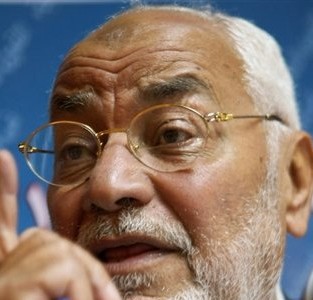CAIRO: Although it is too late for full international observation of the upcoming parliamentary elections, some international organizations are preparing to support the country’s first elections since the ousting of president Hosni Mubarak with diverse measures.
Last Tuesday, the EU made available €2 million to support the Egyptian elections. Michael Mann, chief spokesperson to High Representative Catherine Ashton, told Daily News Egypt that the funds would be used “for activities including capacity building and awareness-raising of the judiciary and population.” In addition, some will be used “to pay for hardware components that top Egypt’s wish list,” including “printing paper, polling booths etc.”
The funds were allocated as an Instrument for Stability, a type of grant, which according to the EU is meant to “respond urgently to the needs of countries threatened with or undergoing severe political instability.”
Mann, speaking for the European External Action Service, explained that a full EU election observation mission had been offered, but declined by the military leadership. “They did however seem open to receiving support initiatives aimed at accompanying the electoral processes the country is likely to go through over the two coming years,” he said. The EEAS, through various NGOs, began training domestic observers in March.
In July, the Supreme Council of the Armed Forces (SCAF) announced that the country would not allow international groups to monitor the elections, arguing that it would amount to foreign intervention. Shortly after their announcement, Egyptian State Security prosecutors began investigating Egyptian NGOs taking foreign donations.
Then in early October, SCAF conceded some ground on foreign involvement. Former American President Jimmy Carter, who is currently observing Tunisia’s elections, told Reuters that Field Marshal Tantawy would allow his representatives to witness the elections. "That’s a distance from ‘observing,” he clarified. The Carter Center has observed over 80 elections in 34 countries.
On Thursday, British Deputy Prime Minister told reporters about the Westminster Foundation for Democracy, which allows British members of parliament (MPs) to witness elections overseas. He said that British MP’s “should in one shape or form be able to witness how the elections are going,” but that no plans had been authorized yet. "I look forward to that being confirmed,” he said
On Sunday, representatives of the EU, the Carter Center, and several US missions were in Tunisia to officially observe the country’s first elections since the revolution in January.
